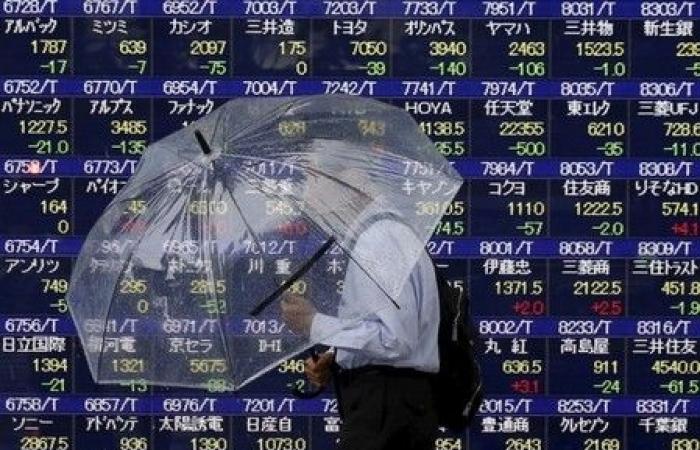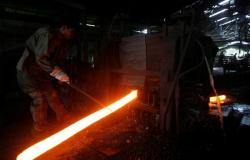Tokyo (awp/afp) – The Seoul Stock Exchange and the won plunged on Monday, penalized by persistent political uncertainty after the failure to impeach the South Korean president, while oil climbed after the fall of Bashar al- Assad, which raises the prospect of geopolitical risks.
Persistent decline in the Seoul Stock Exchange amid political impasse
In Seoul, the Kospi composite index closed down 2.78% to 2,360.58 points, sliding to its lowest level in a year and a half.
For its part, the South Korean currency fell around 06:30 GMT by 0.93% against the greenback, to 1,437.37 won per dollar, evolving at levels not seen since October 2022.
Exchanges remained volatile and marked by nervousness in the face of the political fog in South Korea, a week after the short-lived proclamation of martial law in the country by President Yoon Suk Yeol.
Mr. Yoon narrowly escaped a first impeachment motion on Saturday, but the main opposition party announced that it would try again in mid-December to dismiss the leader, who is also the subject of legal proceedings.
The medium-term economic impact is beginning to be questioned, with an expected drop in the number of Chinese tourists during the Lunar New Year holidays.
Contagion in the economy and markets “could include a slowdown in tourism, weakening domestic demand and deteriorating business morale, particularly if protests become more vehement and budget passage remains on track.” “dead end,” warns MUFG analyst Michael Wan.
And this while South Korean markets, very dependent on the health of the country’s exports, were “among the most vulnerable to the trade policies of +Trump 2.0+”, with the customs taxes promised by the American president-elect.
“The possibility of a worst-case scenario for the Kospi index has strengthened. The slightest developments can cause the stock market to falter due to the weariness of operators, the disappointment, the now very reduced optimism of investors,” adds Lee. Kyoung-Min, strategist at broker Daishin, quoted by Bloomberg.
Syria pushes oil
Around 06:30 GMT, a barrel of American West Texas Intermediate (WTI) gained 0.58% to $67.58, and that of Brent from the North Sea gained 0.53% to $71.50.
The fall of the Syrian government of Bashar al-Assad, driven from power by Islamist rebels, “shakes up the geopolitical theater in the Middle East, with potential implications for Russia and Iran, allies of Damascus: this development could slightly push oil prices” at the start of Asian trade, underlines Stephen Innes, analyst at SPI Asset Management.
For their part, the OPEC+ producing countries overcame their differences on Thursday by continuing their reductions in the supply of black gold to support prices.
However, “Saudi Arabia’s recent decision to reduce crude oil prices for Asia more than expected could slow down any” lasting recovery in prices, “just like the weak demand from China (…) and the oil glut expected next year,” warns Mr. Innes.
In China, markets are digesting inflation
Around 02:00 GMT on the Hong Kong Stock Exchange, the Hang Seng index fell 0.38% to 19,790.54 points. The Shanghai composite index dropped 0.40% and that of Shenzhen lost 0.31%.
Chinese markets took a nosedive after news of a slowdown in inflation in November, reflecting continued sluggish consumption in the country.
At the same time, “ex-factory” prices (excluding transport) continued to decline, down 2.5% year-on-year, a signal of continued sluggish demand.
Now, investors remain hanging on the results of a major economic conference scheduled for this week, which is expected to outline fiscal stimulus measures for 2025.
Cautious rise on the Tokyo Stock Exchange
The flagship Nikkei index ended up 0.18% at 39,160.50, while the broader Topix index rose 0.27% to 2,734.56 points.
Investors were certainly supported by the encouraging figures on American employment revealed on Friday, but “the rise in geopolitical risks”, from Syria to South Korea, “could lead to tempering their enthusiasm”, believe the financial media’s experts Nikkei.
“The Japanese market should lack direction this week”, suspended from monetary policy decisions expected in mid-December in the United States as in Japan, add analysts at Tokai Tokyo Securities.
A sign of the prevailing caution, the Japanese currency was standing still, at 150.13 yen per dollar (+0.09%).
afp/al






